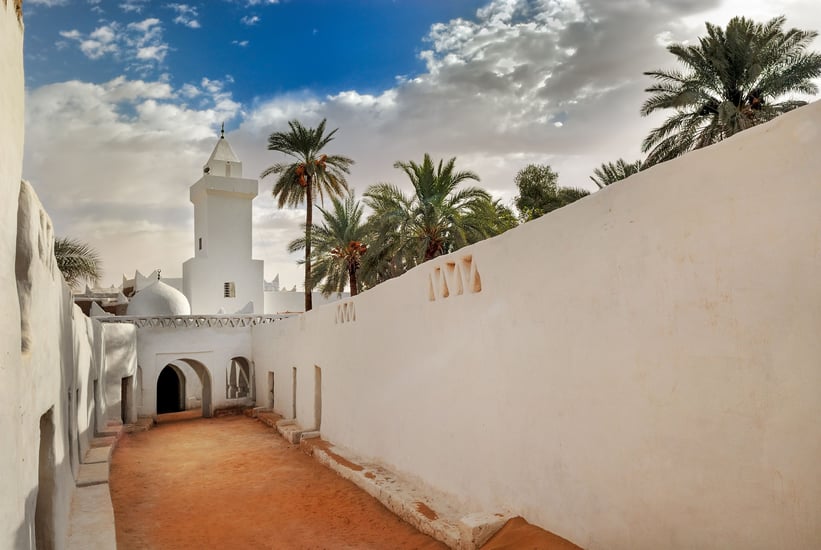Discover Policy Brief
n°02
The Value to the UK of Ratifying The 1954 Hague Convention on the Protection of Cultural Property in the Event of Armed Conflict
The 1954 Hague Convention on the Protection of Cultural Property in the Event of Armed Conflict and its two Protocols of 1954 and 1999 comprise the primary international humanitarian law (IHL) regarding the protection of cultural property during armed conflict.
Since the USA ratified the 1954 Convention in 2009, the UK is now arguably the most significant military power, and the only one with extensive military involvements abroad, not to have ratified the Convention. This leaves the UK isolated internationally and at significant disadvantage with respect to our aspiration to be a global leader with regard to IHL and significantly undermines our claim to be at the forefront of working for global security and peace. There are no reasons stopping the UK ratifying the Convention except the need to find Parliamentary time to pass the necessary primary legislation.
Read Policy Brief
n°03
Table of Contents
01
Key Points
Ratification of the 1954 Convention and its two Protocols has all Party Parliamentary support in the UK Parliament and the support of the Department for Culture, Media and Sport (DCMS), the Department for International Development (DFID), the Foreign and Commonwealth Office (FCO), and the Ministry of Defence (MoD), (details available on request)
→
The concerns raised by the MoD in 1954 were addressed by the drafting of the 1999 2nd Protocol.
→
Ratification has very strong support from across the cultural and heritage sector.
→
Her Majesty’s Government (HMG) has made a number of public commitments to ratification of the Convention and its Protocols, most notably in 2004 and 2011 (see [3] below); answers to recent Parliamentary questions have reiterated HMG’s intention to ratify at the earliest opportunity (see [3] below).
→
It is anticipated that the Iraq Inquiry will include as one of its recommendations that the Convention and its Protocols be ratified at the earliest opportunity.
→
The Rt Hon Jeremy Hunt MP, Secretary of State at Department for Culture, Media and Sport (DCMS), wrote in March 2012 to the Rt. Hon. Sir George Young Bt MP, Chair of the Parliamentary Business and Legislative Committee and Leader of the House of Commons, to “strongly register” his interest in the inclusion of a Cultural Property (Armed Conflicts) Bill within the Third Session.

02
Background
The UK signed the Convention and First Protocol in 1954. Given concerns flagged by the MoD it did not ratify either the Convention or the 1954 Protocol. The 1999 Second Protocol, drafted with the assistance of UK experts, addressed the MoD’s concerns. However, no attempt was made to ratify the Convention and its Protocols.
In 2003, the UK co-led the invasion of Iraq not having ratified the Convention but claiming to work “within the spirit of the Convention”. The then Prime Minister reassured Parliament that, “we are fully committed to the protection of cultural property. That is not merely the Government’s position: we are also committed to that under the Geneva Conventions … we will do everything that we can to make sure that sites of cultural or religious significance are properly and fully protected” (Hansard, 19 March 2003, col. 940).
On 21 March 2003 the Secretary of State for Defence, in a letter to the President of the UK Committee of the International Council on Monuments and Sites confirmed that, “notwithstanding the fact that the [Hague] Convention is yet to be ratified the UK remains fully committed to the protection of cultural property in times of armed conflict in accordance with international law”. However, no British troops had orders to protect museums, libraries, archives, galleries, or archaeological sites in Iraq. This could be, and has been, interpreted as a failure to comply with IHL.
Ensuing Timeline:
→
2004, Rt Hon Andrew McIntosh MP, then Minister for Heritage, announced that the UK intended to ratify the Convention and its Protocols.
→
2005, DCMS issued a consultation paper on “various aspects of the Convention and its implementation in the UK”.
→
2007, the Government announced its intention to publish a draft Cultural Property (Armed Conflicts) Bill.
→
(14 May) 2008, Government’s Draft Legislative Programme confirmed provisions would be brought before Parliament in the 2008/9 Session, “as part of a bill whose main purpose will be to reform the heritage protection system in England and Wales”.
→
In the summer of 2008 the Draft Cultural Property (Armed Conflicts) Bill was scrutinised by DCMS Select Committee. The Draft Bill was merged with the wider Draft Heritage Protection Bill.
→
Autumn 2008, the Heritage Protection Bill was not included in Queen’s speech.
→
2009, the USA ratified the Convention (but not its Protocols).
→
(10 June) 2009, Oral assurance to UK National Commission for UNESCO (UKNC – the focal point in the UK for UNESCO-related policies and activities) by Barbara Follett MP, Minister of Heritage, that HMG was committed to ratification as quickly as possible.
→
2010, Written evidence and supporting publication was submitted to the Iraq Inquiry by UKNC and twelve other cultural organisations (UKNC 2010).
→
(10 May) 2011, Assurance to UKNC by Ed Vaizey MP, Minister of Heritage, that HMG was committed to ratification at the earliest possible opportunity.
→
(November) 2011, Rt Hon Jeremy Hunt MP, Secretary of State at DCMS, made a joint UK Government and British Red Cross Society pledge “to make every effort to facilitate the UK’s ratification of the 1954 Hague Convention for the Protection of Cultural Property in the Event of Armed Conflict and its two Protocols, and to promote understanding of the principles and rules of the Convention within the UK” at the 31st International Conference of the Red Cross and Red Crescent.
→
2012 Written questions have been asked in both Houses of Parliament:
n°1
Question, The Earl of Clancarty: “To ask Her Majesty’s Government whether they will introduce legislation to ratify the 1954 Hague Convention on the Protection of Cultural Property in the Event of Armed Conflict and its two protocols of 1954 and 1999; and if so, when.”[HL16473]
Response, Baroness Rawlings: “The Government are committed to introducing legislation to ratify the 1954 Hague Convention on the Protection of Cultural Property and accede to its two protocols as soon as parliamentary time allows, taking account of all our legislative priorities.”
n°2
Question, Guy Opperman MP (Hexham): “To ask the Secretary of State for Culture, Olympics, Media and Sport, what recent assessment he has made of the adequacy of protection of cultural property in areas of conflict; and if he will bring forward legislative proposals based on the draft Cultural Property (Armed Conflicts) Bill 2008.” [102319].
Response, John Penrose MP: “Although this Department has not made a recent assessment of the adequacy of protection of cultural property in areas of conflict, I am aware that evaluation and assessment to help ensure effective respect and protection of cultural property are an integral part of military operations. The Government is committed to introducing legislation to ratify the 1954 Hague Convention on the Protection of Cultural Property and accede to its two Protocols as soon as Parliamentary time allows, taking account of all our legislative priorities.”
The Blue Shield
The Blue Shield emblem is presented in the 1954 Convention as the symbol to identify cultural property to be protected under the Convention. The International Committee of the Blue Shield (ICBS) was set up in 1996 to work to protect the world’s cultural heritage threatened by wars and natural disasters. ICBS was recognised in the Second Protocol to the Hague Convention which gives ICBS an official role to advise the inter-governmental Committee for Protection of Cultural Property in the Event of Armed Conflict. Despite its formal role, the ICBS has failed to make a major international impact. In order to address some of the bureaucratic issues faced by ICBS the Association of National Committees of the Blue Shield (ANCBS) was formed in 2008 to coordinate and strengthen international efforts to protect cultural property at risk of destruction in armed conflicts or natural disasters – ancbs.org.
Until 2012 the UK and Ireland shared a ‘National’ Blue Shield Committee. This has proved challenging and at the recent General Assembly of the ANCBS (April 2012) it was agreed to de- couple the Committee. It will be important that the UK develop an effective National Committee of the Blue Shield and an initial meeting is scheduled in September 2012. Ireland has already got its own national committee.
There will be no additional financial implication for HMG as a result of the creation of a UK Committee for the Blue Shield but the opportunity provided for raising the UK’s humanitarian profile through reacting to natural, as well as conflict, disasters is significant.

03
Current Situation
→
We wait for the outcome of the request for Parliamentary time in the Third Session.
→
We wait for the publication of the Iraq Inquiry and the anticipated recommendation for ratification at the earliest opportunity.
→
The UKNC will be leading on arrangements to make the new UK Committee of the Blue Shield more effective.
→
In order to help facilitate ratification, the UKNC is preparing a commentary on modifications necessary for the Draft Cultural Property (Armed Conflict) Bill as identified by the DCMS Select Committee in 2008.

04
Key Considerations
→
Has HMG committed to ratification? YES
→
Does ratification have all Party support? YES
→
Does ratification have cross Whitehall support (DCMS, DFID, FCO, and MoD)? YES
→
Does ratification have strong support from the cultural and heritage sector? YES
→
Is further pressure on HMG to ratify likely? YES from the Iraq Inquiry
→
Would ratification involve significant additional expenditure for HMG? NO
→
Would ratification take up significant Parliamentary time? NO necessary modifications to the Draft Bill are minimal

05
Options
n°1
Continue not to find Parliamentary time for the ratification of the 1954 Convention and its two Protocols and thereby allow the UK risking international isolation and condemnation at international gatherings concerning international humanitarian law and armed conflict.
n°2
Find Parliamentary time for primary legislation to allow ratification which would enable the UK to begin to regain its primary role as a major player in this field on the global stage. The work currently underway with respect to the development of a UK Committee of the Blue Shield has the scope to facilitate this.

06
Recommendations
That HMG seizes the opportunity to ratify The 1954 Hague Convention on the Protection of Cultural Property in the Event of Armed Conflict and its two Protocols of 1954 and 1999 in the next 2012 Parliamentary session.
References
Acknowledgements
? Browse #PolicyBriefs

Enhancing and Harmonising the Strategic Management of UNESCO’s Goodwill Ambassador Programme
AUGUST 2013
#PolicyBrief n°11

An evaluation of the Intergovernmental Oceanographic Commission’s role in global marine science and oceanography
FEBRUARY 2015
#PolicyBrief n°13
The UK National Commission for UNESCO’s Policy Advice
We work with world-leading experts to advise the UK and devolved governments on UNESCO-related issues and to shape UNESCO’s programmes
From analysing global education goals to practical steps to implement UNESCO’s Recommendations, our advice helps ensure UNESCO’s work is effective and UK governments can fulfil their commitments as members of UNESCO






